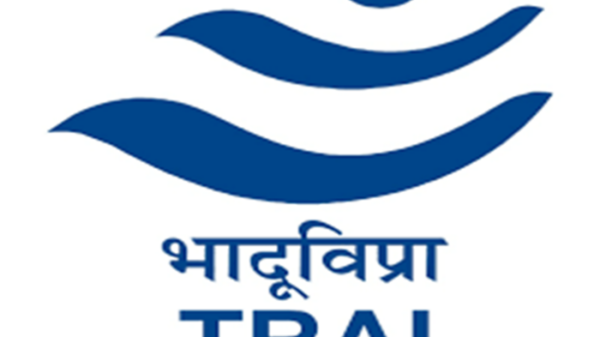“I’m just wondering about whether the battle was lost for the internet the moment the framing shifted from privacy to data protection. Because data protection essentially has in it the idea of data sovereignty, and this sort of has two competing aims: enhancing privacy and preventing the loss of economic capital in terms of data,” MediaNama’s Nikhil Pahwa mused while speaking at PrivacyNama 2021, a global conference on privacy regulations held on October 6 and 7.
The discussion in which Nikhil chimed in was focused on understanding the impact of privacy legislation on the openness of the internet. Countries are increasingly favouring digital sovereignty in their data protection regulations, pushing for provisions like data localisation and restrictions on cross-border data flows for the sake of security, privacy, and commerce.
Can data protection and privacy go hand-in-hand?
Data protection includes privacy: “Privacy is only about protecting the private sphere. Whereas data protection is about protecting privacy, plus a wide range of other interests such as freedom of expression. If you know that you are not surveilled you speak freely. It’s about participating in the democracy and in the economy of your country. So if you know that the data are not controlled and harvested only by foreign companies, you have an incentive in being creative and innovating,” Luca Belli, head of CyberBRICS Project, explained in response to Pahwa’s concerns.
Privacy is right of opacity and data protection is the right of transparency: “In Latin America and Europe, this is very clear cut, so privacy is the right of opacity, it’s the protection of your private sphere. And data protection is the right of transparency, it’s being able to know, clearly, who is collecting your data, for what purposes they are using them, and with whom they are sharing, and who have control to exert control on this,” Belli added.
Data protection enables informational self-determination: “In terms of data protection, we want people to be able to exert control on their data, and this is really how it has been framed for the first time in terms of informational self-determination in both the German 1983 census case and in India’s Puttaswamy case,” Belli observed. Countering Belli, Nikhil remarked: “We don’t necessarily have informational self determination for individuals, this is informational self determination for the state. So, essentially, it doesn’t seem as if, at least in the Indian context that the citizens have a choice of acts of allowing the data to go freely across the world, even if they wanted to.”
The troubling example of China: While Belli argued that privacy is not compromised because of data protection and digital sovereignty measures, Alexa Lee, senior manager of global policy at ITI Council, pointed at the troubling example of China where privacy is at stake because of data localisation. “In the case of China, I’m a little concerned about the long-term trajectory, because the push for data sovereignty somewhat brings information under the government control and allows the government to identify potential threat individuals. In the long term, it could complicate privacy, data protection, and the freedom of speech. And I do want to emphasise that though the PIPL [Personal Information Protection Law] provides a lot of really positive, really good elements to protect Chinese consumers similar to some of the GDPR concepts, it still worries me that the Chinese government retains broad and very vague legal authority in its law to potentially access data for national security purposes that might ultimately be at odds with individual privacy,” Lee said.
Support MediaNama’s endeavor to enable meaningful conversations around technology policy. Subscribe here.
Why is there a push for digital sovereignty?
Data asymmetry: “The free flow of data is highly asymmetric. There are only a couple of very powerful US corporations, that harvest at scale all data globally. This is why strong arguments of data sovereignty is used to strengthen data protection,” Luca Belli said.
The alternative is Facebook can exploit us: Concurring with Belli, Dr. Andrew Rens, senior research fellow at Research ICT Africa, added: “The reason I think that localisation is getting so much power right now is there’s not a great alternative. The alternative is Facebook can exploit us.”
But, will data localisation help drive economic value?
No, it doesn’t: “Requiring data to be stored and processed domestically, I just want to emphasize, it does not drive economic value, Lee, said. “In fact, it’s a matter of about how many data come into your country, how many data flow out, and how many times they can be exchanged with the rest of the world, that is where the value of the data can be created multiple times. So, the false appeal of data localization is thinking that you can just keep all the data in your own country and that you will make the best use of it, it’s just not the practical approach,” Lee elaborated.
Data only has value when you refine it: Andrew Rens added: “We’ve heard that data is the new oil and the first person to say that apparently also said like oil you actually need to go and refine it and crack it and make plastic, There’s no use to sitting on its own.”
But exploiting data can cause people to lose trust in the data ecosystem: Adding a caveat to his claim about data being like oil, Rens said: “I think data is the new fish. If you over exploit the fish in the ocean, then you’ll end up with none, you’ll destroy the ecosystem. And if you have a huge pile of fish, you’ll have a problem, they’ll rot and you’ll get scavengers coming. And you’ve got to move them along and you know sell the fish, you can’t just have a huge pile of fish it doesn’t help you, in fact it’s a problem.” “Exploiting data can cause people to lose trust in the data ecosystem and refuse to give data or give inaccurate data,” Rens later explained in a tweet clarifying what he meant. A government that wants to centralize and amass data has to then keep it current, accurate and fend off hackers. Thus data is not inherently valuable and can be a liability, he added.
The false appeal of data nationalism: “My concern about the false appeal of data nationalism, as reflected in the Chinese approach, is that the value of data comes from, how it’s being used and not where it is stored. So in the case of an authoritarian country like China, the data localization measures support surveillance and social and political control. So it’s not surprising, countries like Russia and China are the most significant users of data localization, because it’ll align with their political goals,” Lee said.
Digital sovereignty going forward
Problem is not digital sovereignty but how we define it: Countering arguments that digital sovereignty is used as a pretext to advance political ideas, Belli explained that digital sovereignty is not a universally defined concept. “It could be something very positive if its for the individual or if it would help the local or national digital economy but of course it can also be used for geo political reasons,” he said. “The fact that the Indian government or the Chinese government or the European Commission say that something is digital sovereignty is not something universally agreed. So of course it is misused to put in what the specific speaker wants to,” Belli added. “So I will not say that the problem is digital sovereignty itself, but it is how we define it.”
A lot depends on what the US does: “One worry is that data localization will have us all in our silos and we’ll end up with the internet in which, you know we can barely speak to each other. Whether we end up with the silos or not will depend to some extent on the global political economy. So the real question is will the United States create a data regime that protects personal privacy and then put its political power behind it. So will it decide that it’s not going to tolerate its own extractive corporations and engage in surveillance capitalism from doing that. If it creates some kind of boundaries for surveillance capitalism, a lot of economies will say alright, we can now still tolerate this sort of integration with the US economy, because there’s this level of protection,” Rens said.
What about an EU alternative? “Maybe the EU providing an attractive alternative, the trouble is the barrier for EU compliance is very high. Let’s say the South African economy says we want the EU to sign off and send us data and we can send them data and we will comply with all their standards. But this requires resources, it’s just not that simple for all developing countries to do that,” Rens explained.
Ideal situation: “In the ideal world, there would be global data protection rules to which everyone is bound to, and we don’t have to have that digital sovereignty, because everyone respects the same rules, and everyone plays according the same book. Sadly, we don’t have these yet, and therefore there will be data sovereignty, digital sovereignty, and the kind of situation we have now,” Belli commented.
MediaNama hosted this event with support from Facebook, Flipkart, Internet Society, Mozilla, Mobile Premier League, Omidyar Network, Paytm, Star India, and Xiaomi. We are also thankful to our community partners, the CyberBRICS Project, the Centre for Internet and Society, and the Centre for Communication Governance (NLU Delhi).
The comments and quotes of panelists have been edited for clarity and brevity.
Update (11 October, 10:30 pm): Changed the interpretation of the fish analogy made by Dr. Andrew Rens after he clarified what he meant on Twitter. The original story had misunderstood the argument as claiming data is rivalrous in consumption, which is not what he meant.
Also Read
- ‘Digital Sovereignty Involves Autonomy Of Indians’ Says IT Minister Ravi Shankar Prasad
- Germany, France Push For Digital Sovereignty To Mitigate American Dominance
- BRICS Countries To Build Digital Sovereignty – Luca Belli, CyberBRICS
- How Is China’s Data Protection Law Different From EU’s GPDR? #PrivacyNama2021
- The Chasm Between Passing A Data Protection Law Vs Actually Implementing It – #PrivacyNama2021
Have something to add? Subscribe to MediaNama here and post your comment.





























